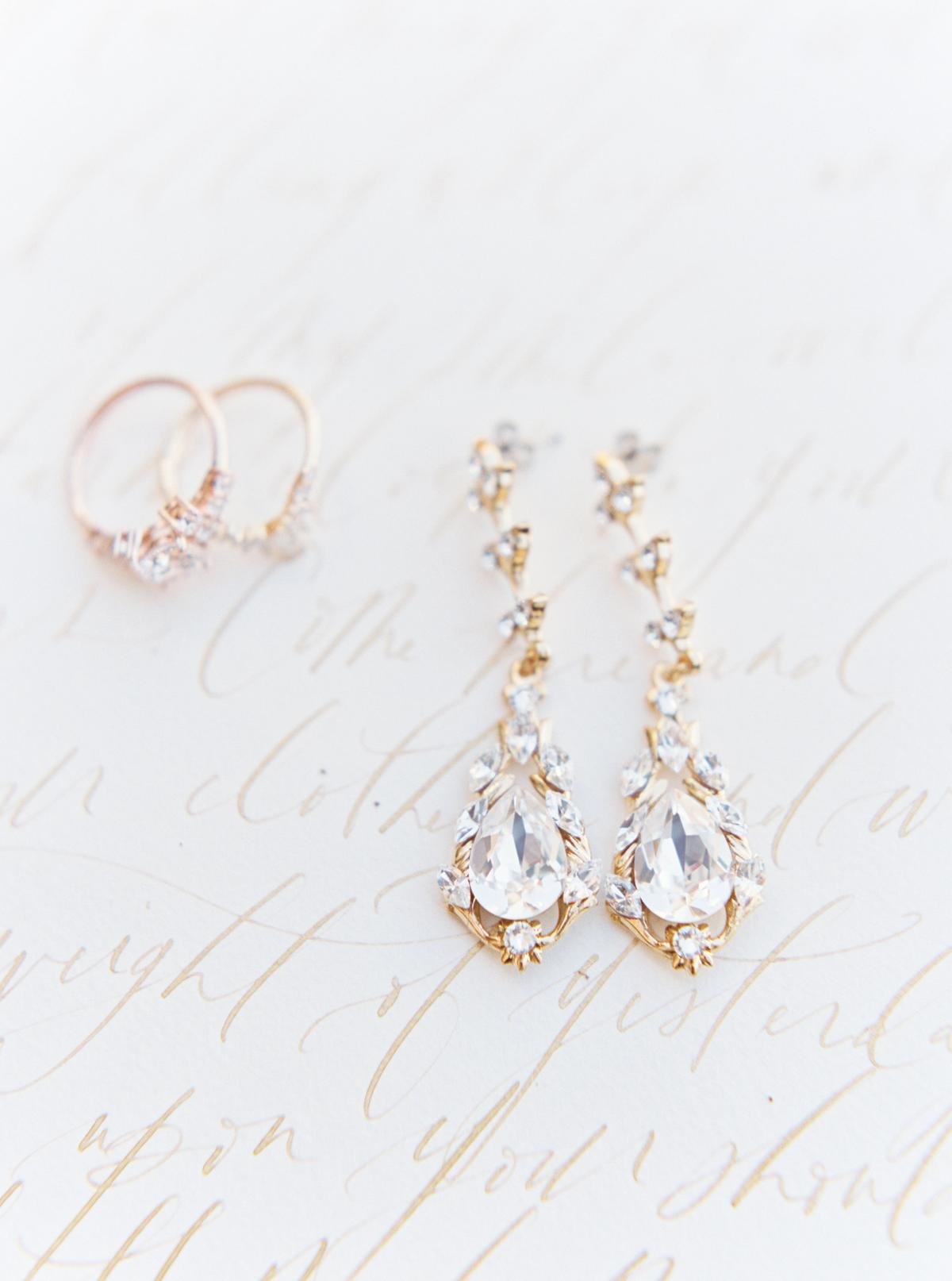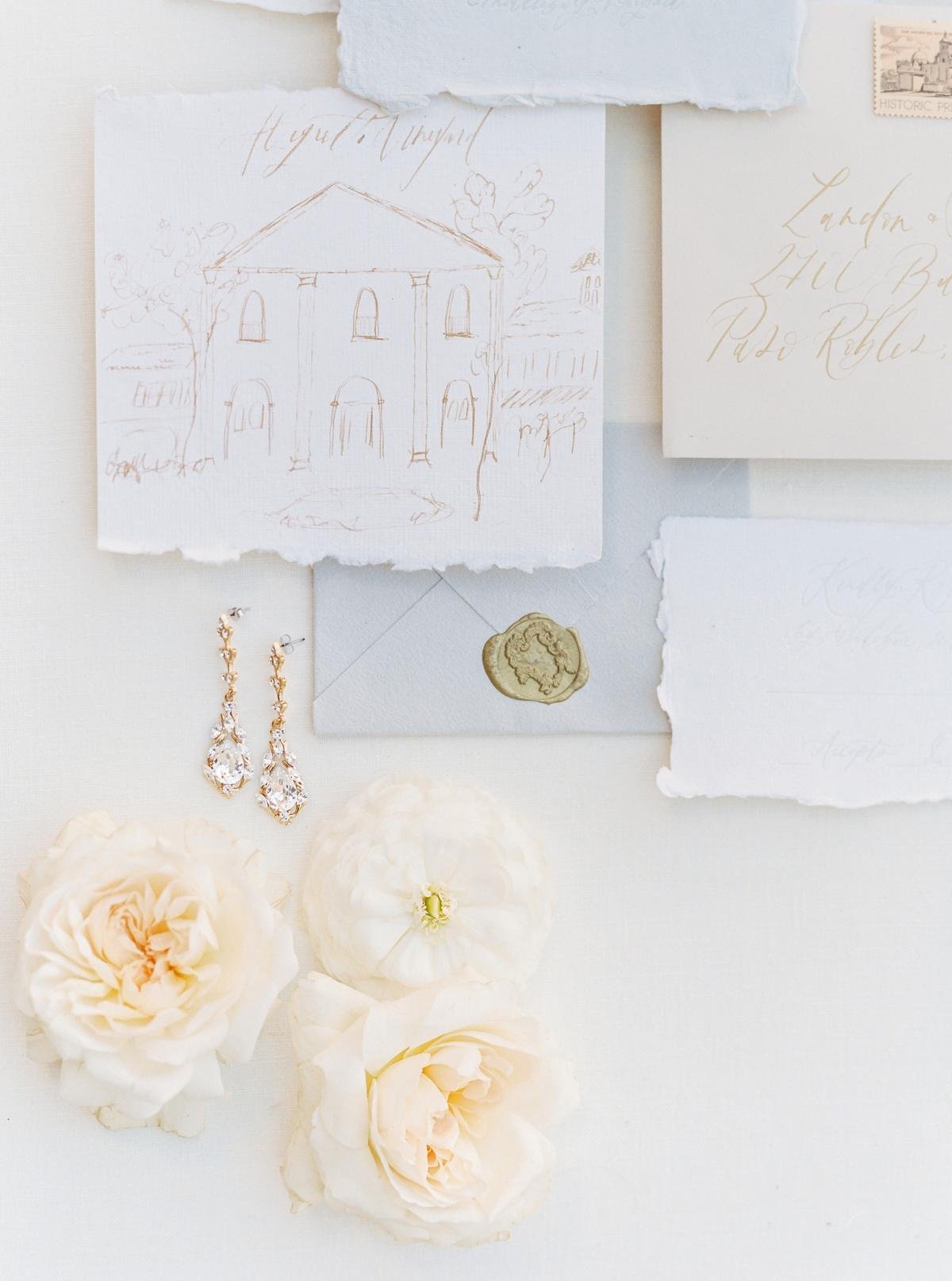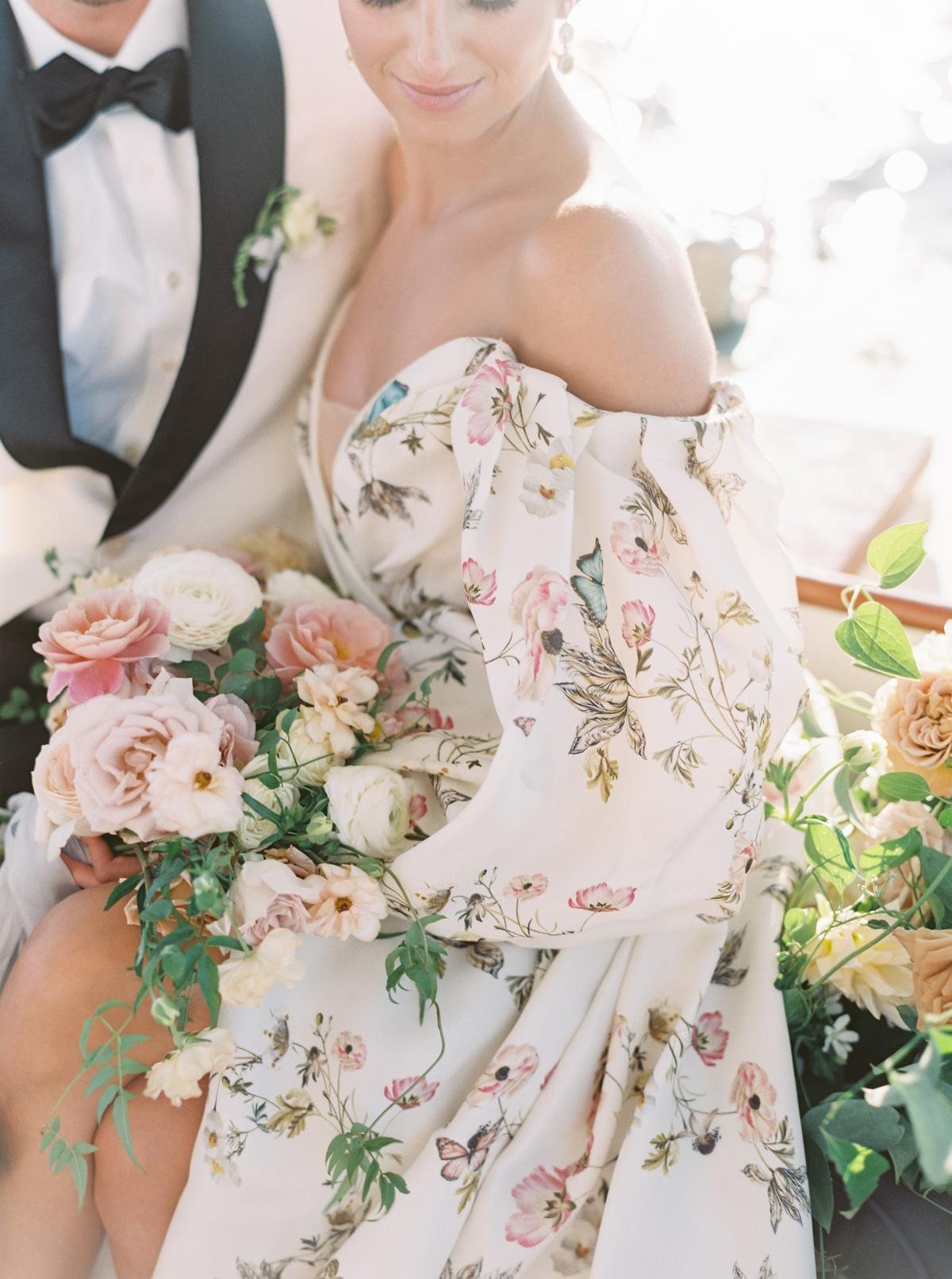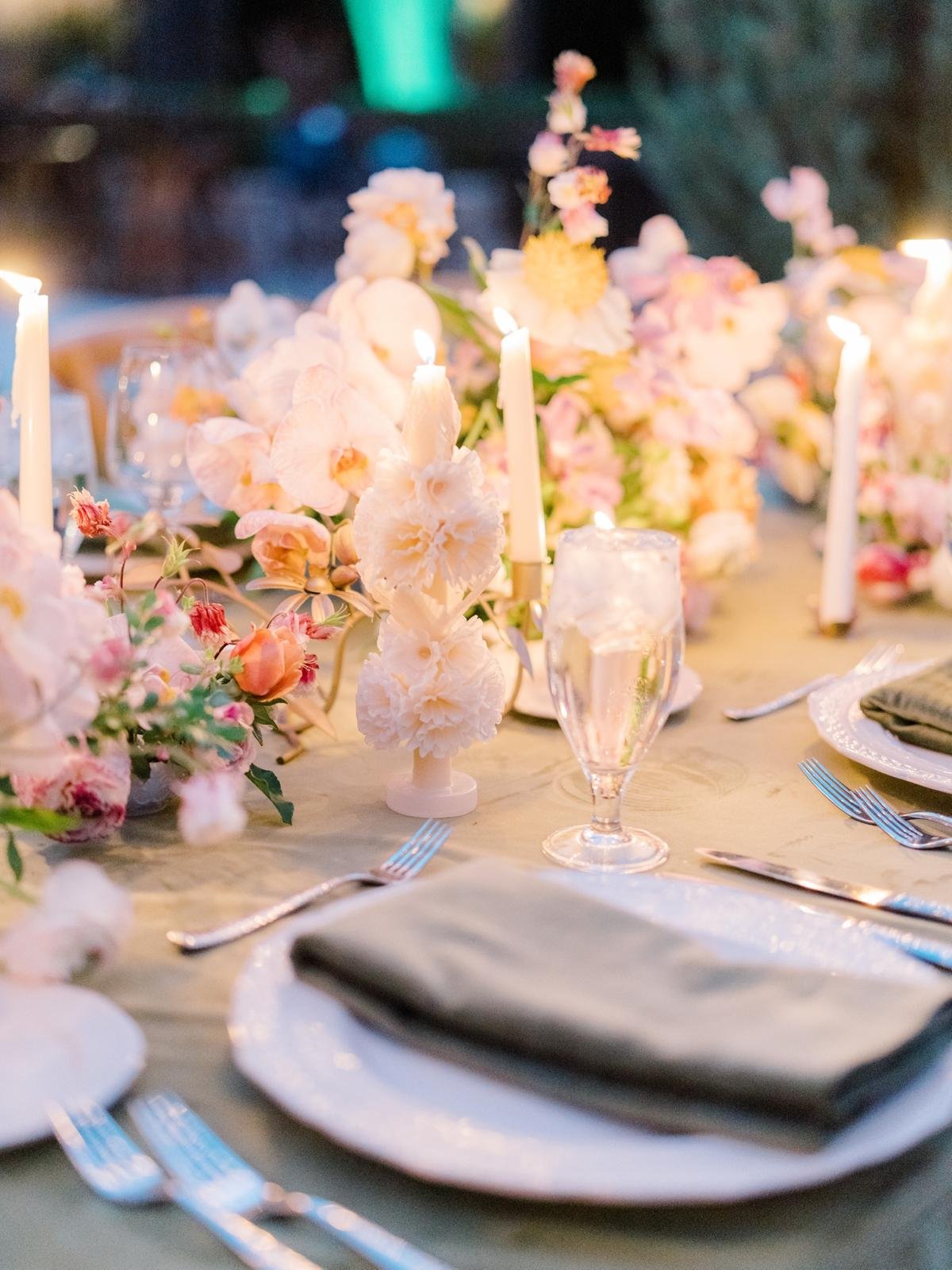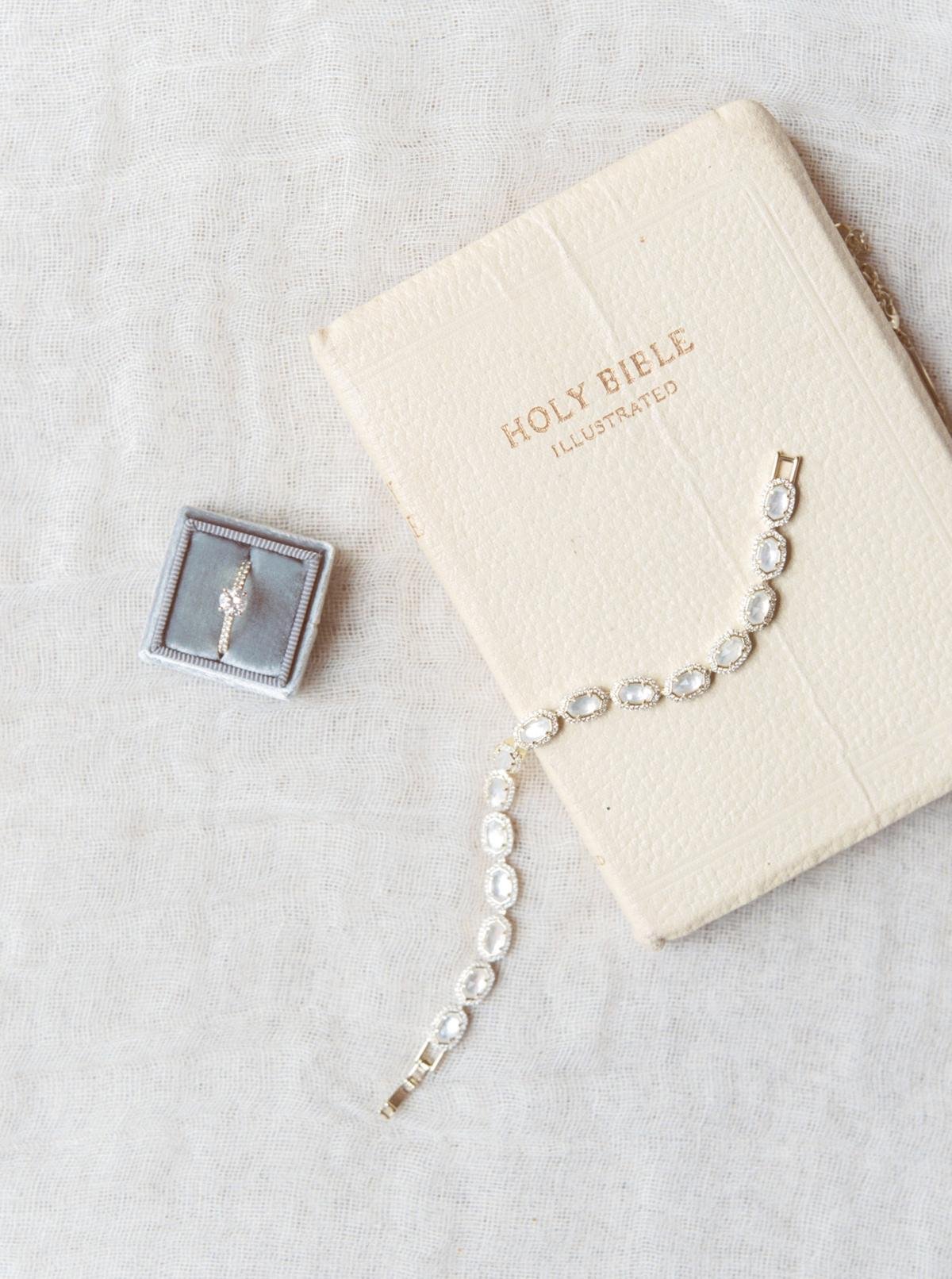How to Write Beautiful, Personal Wedding Vows
Photography | Sophie Epton
When we think of creating a beautiful wedding ceremony, we tend to lavish attention on the visual aspects. We imagine our wedding gown, and the floral arch that awaits us at the altar. Colors, flowers, and fabrics fill our mind. But to create a truly meaningful moment—a moment filled with intangible beauty—we should not overlook the spiritual and emotional aspects of our ceremony. For there is a beauty that transcends the visual, moments that are powerful for the depth of love and grace they hold. We all long—perhaps every moment of every day—to encounter such a moment: the kind of moment we only experience a few times in life. I am not arguing to scorn visual experience, but instead to nurture prayerful, invisible beauty as well as beautiful design. To seek this inner truth and beauty first-- and experience the surpassing beauty that follows.
When it comes to creating unforgettable ceremonies, we should not leave unexplored the unseen beauty of words, vows, and above all Scripture and prayer. And one beautiful way to bring this beauty to your ceremony is by writing personal wedding vows.
These vows contain the emotion of the prayers you’ve prayed, years you’ve waited, and trials you’ve faced to arrive at exactly this moment. There is beauty in saying traditional vows, and I would never argue against this choice, as I am myself a traditionalist at heart. But there is also a thoughtful, honorable, artistic, and beautiful way to approach personal wedding vows. These can even become an expression of worship and praise to God.
May your vows speak to your experience even as they honor the traditions and promises of marriage, and may they gladden the very heart of heaven. Read on for Chapel Journal’s guide to authoring personal vows— vows that are prayerful, graceful, and honorable to God, before whom we vow our love.
Prayer & Biblical Meditation
As with all decisions, we demonstrate our faithfulness when we take them at once to God in prayer. Logic and reason may tell us to do something practical, but we know that prayer is life’s greatest timesaver; the longer we spend dwelling in communion, the more time we have left over. Equipped by divine grace, we become efficient and energized. When we are left to our own devices, we are rarely able to discern the right way (Proverbs 16:25), but as we bask in His presence, He lights our path and points us towards that which is truly life (Psalm 16:11). Instead of asking friends or counselors or looking up quotes, permit yourself to dwell in God’s company. Linger over Scripture and allow God to speak profoundly to your heart in prayer. He will bring passages to light and speak to your heart in the most surprising, delightful, and unexpected ways. He may press a verse onto your heart that you hadn’t thought of in years— after all, the Word of God is living and active (Hebrews 4:12)— or He may give you a sentence or song. No one can rivet the heart and speak to us as creatively, personally, and tenderly as He can. Allow Him to bathe your heart in peace, speak to you through His word, and direct your writing process completely. Pray to honor Him with your words and with the vows you make before Him. He will surely bless the heart that seeks Him and His glory first (Matthew 6:33).
Photography, from left to right: Meiwan Wang, Cara Mia
2. Turn to Favorite Passages
If you keep a prayer journal or commonplace book, this can be a treasure trove of inspiration for your personal vows. It’s especially helpful if you date your entries, as you can see visibly how God has worked in your life and spoken to you over the years. Dwell with the passages that comforted your heart in dark times. Call to mind memories of God’s faithfulness, and the words He spoke to your soul. Remember the sweet and powerful promises He made, and how His divine grace enabled you to come this far. Your personal vows will be made so poignant as you recall these times and the passages that solaced and strengthened you.
Photography, left to right | shared on Instagram, from Rime Arodaky, Laura Gordon Photography
3. Discuss Format
It’s only natural to want to keep your vows a secret that you reveal on wedding day. However, it’s a good idea to discuss form and structure with your fiancé first, and to establish a few guiding principles. The length and tone of your vows should be similar; it would be awkward, for instance, to pour your heart out, only to have your fiancé respond with quirky and comedic vows. This is also a form of being thoughtful to your guests and their experience—of not placing them in an uncomfortable situation.
Discuss how long you want your vows to be, and the tone you’re aiming for. Be honest about the kind of emotional moment you hope to share. If your heart is longing for intimate, beautiful, and passionate words, reveal this to your fiancé. Don’t be shy about expressing what it is you hope to feel and be promised in this sacred moment. Above all, pray with one another, for this knits your spirits together in an intimate and mysterious way. God loves to surprise His own with delightful answers to prayer, and you may be astonished to find your fiancé mention something or bring up a passage you’ve always longed to hear—because God placed that burden on his heart. When we partner with Him in the process, He can take our feeble efforts and make something extraordinary of them, connecting us to our heart’s desire in a manner and way that’s so beautiful, only He could bring it about.
Photography, top left and bottom right: Erich McVey; top right and bottom left: Lauren Fair
4. Begin Early
Don’t, I beg of you, save your vows for days or moments leading up to the wedding day. The wedding week is generally intense in terms of pace and doesn’t usually lend itself to moments of quiet, sustained reflection. These words are your wedding vows, and they deserve reverence, attention, diligence, and considerate preparation. Begin early enough (a few months ahead is a good general rule) to seek God in prayer, compose a thoughtful piece, and acquaint yourself with your words.
5. Get One Messy Draft on Paper
Be respectful of the writing process but try not to be intimidated by it. One of the best ways to conquer a fear of writing is simply to write. Get all your thoughts down, and during the writing of this first draft, don’t worry about beauty. You have time to shape, finesse, and beautify your vows later; this first draft is about getting to the essence of the matter.
You’ll find that, simply by undergoing this process, your thoughts are being refined. The physical act of writing is bringing you nearer to clarity of thought. You may realize that you weren’t even quite sure what your heart contained until you began to write—and writing revealed it to you. Get one messy draft onto paper, and so much of the anxiety and fear of writing will be relieved. You may feel oddly cleansed afterwards—as though you’ve gotten the fear and intimidation out of the way, and now you’re free to speak from your soul. But above all, don’t delay writing. Simply take the pressure off and get one draft down, and the flow state will surely soon follow.
Photography | Pearl & Godiva
6. Take a Break
After writing your first draft, set it aside for a moment. It’s especially beautiful to take a walk outside, letting your ideas breathe. Something about solitary time in nature—a walk through a garden, or along the ocean—seems to quiet the soul and offer up ideas. Ancient philosophers knew the value of peripatetic walks and talks, and this ancient wisdom is of course every bit as salient today. By the end of your walk, you’ll feel refreshed and re-inspired.
Photography, from left to right: Oliver Fly, Greg Finck
7. Write About Your Spiritual Journey
The most intimate and beautiful thing you could express is praise, glory, and gratitude for the God who connected your souls. How lovely is praise flowing from a faithful, adoring heart (Psalm 33:1). When writing your vows, seeking to glorify God first will endow your writing with limitless meaning and order. Reflect on the process that led you here. Remember how lonely you truly were without your beloved. Appreciate the years of singleness that God spent sanctifying and conforming you into the image of His beloved Son. Consider the trials and the discipline you needed to endure before you could love and serve another in marriage. While painful, these moments—especially periods of waiting and silence—prepared your heart for a greater joy than you knew possible (Isaiah 64:4, Romans 4:18). Thank God for all He has done for your life, for His faithfulness over the years, and for the glorious way He brought you together.
Photography, from left to right: Oliver Fly, Lauren Fair
8. Turn to Poetry & Literature
As a lifelong lover of poetry and literature, this part of the process speaks poignantly to my heart. Rather than writing personal vows, it can be beautiful simply to recite a passage or poem. When beautifully delivered, this kind of recitation can create a hush over the audience, the moment.
Surround yourself with some of the most beautiful ideas, imagery, and expressions of love ever committed to language. Look to the greats and quote them prolifically. For some of us, passages of literature and poetry are written into our poetic memory and become such an indelible part of us, we know just which passages to choose. We’ve become so intimately acquainted with them that it’s difficult to tell where that writer’s ideas end and ours begin.
Photography: “Je T’aime” image (top right): Rebecca Yale, other images, Lauren Fair.
9. Read the Letters of Famous Beloveds
Elizabeth Barrett Browning’s sonnets to Robert Browning. Nabokov’s letters to Véra. Keats’s writing to Fanny Brawne. Neruda’s sonnets for Matilde. For passionate inspiration, look to the great epistolary romances of the past. These famous letters of writers to their beloveds overflow with intensity, lyrical tenderness, and intimacy.
For extra bonus points, when selecting verses of poetry or excerpts from letters or literature, choose a passage that evokes your wedding aesthetic. Pastoral poetry for weddings in an open field, the Romantics for the English Countryside, Petrarchan sonnets for an Italian exchange of vows, Odysseus’ homecoming for a Greek ceremony, and passionate French lyric poetry for a Parisian elopement.
Photography, from left to right: Oliver Fly, Greg Finck
10. Connect With Your Fiancé
Sometimes, when writing about a thing, the process can feel a bit artificial—a bit distant from the thing itself. To avoid a stilted or awkward piece of writing—and of course for reasons far beyond this—carve out time for meaningful connection with your fiancé. The stress of wedding planning too often eclipses the richer, lasting work of nurturing a union. Simply setting aside days to connect—over dinner, on a walk, at the café where it all began—will remind you of the essentials. Indulge yourself with a little nostalgia. Go on a drive and listen to all the music you fell in love over. Go out for breakfast where you had your second shy date. Revisit the movie you watched on an outdoor projector and pack the same picnic dinner. Pray together; recount the wonderful way God brought you together, and contemplate the hopeful plans He has for your future. Your love story is the ultimate inspiration for this piece of writing. Re-read that story often, for it will remind you of everything you need to write about.
11. Practice
Give yourself the gift of practicing your vows and becoming so acquainted with your words, you’ve internalized them. This kind of preparation is similar to athletic training; athletes rely on muscle memory, on movement that becomes as essential as breathing, so that, in moments of high stress and adrenaline, this memory takes over. You’ll likely be feeling some nerves on your wedding day, so it’s best to have committed your vows to memory, to know how it feels to say them. Preparation paves the way for calm, grace, and confident poise.
12. Don’t Be Afraid to Show Emotion
That being said, don’t feel you have to be an automaton. The most beautiful performances—whether in music or dance or theater—contain the pathos of untidy, human emotion and even imperfection. To use the musical analogy, there is a tenderness and honesty to a live performance —even if the singer’s voice cracks or falters-- that transcends the artificial perfection of lip-synching. Invite all of the emotions that come to you in this blessed moment. If your words are broken by tears, don’t be shy. If your voice shakes or falters with emotion, that will only endow the moment with beauty and honesty. We only get to live a very few moments like this, and we should permit ourselves to be overcome by the blessing of it all.
Photography: Erich McVey, Winsome + Wright
13. Make Your Vows a Forever Keepsake
When creating weddings, I am always deeply interested in creating keepsakes to pass on to children and grandchildren. In memorializing the moment. I owe this, I am sure, to the moments I spent admiring my mom’s wedding bouquet, preserved and encased behind glass, with its luscious satin ribbon—how enraptured I was. On that note, I can think of nothing more elegant and meaningful than a beautifully bound vow book. How your daughter will love reading through your vows, admiring its cover, tracing its calligraphed letters. Work with your stationer to create this forever piece, drawing inspiration from your invitation and lettering style. When you arrive at the moment, clutching this treasure, you will feel the weight of the grace you are holding. And when you pass this piece down—perhaps watching, someday, as a daughter holds the same book—your heart will be filled with gratitude for the care you took to preserve—and keep—those vows.
Photography, from left to right: Joey Kennedy, Oliver Fly







